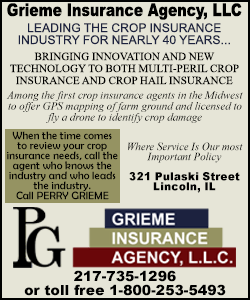|
 Over more than three decades as a Baltimore resident ending in
2013, Carson - now a front-runner in the race for the Republican
Party nomination - rarely spoke about his political views. Over more than three decades as a Baltimore resident ending in
2013, Carson - now a front-runner in the race for the Republican
Party nomination - rarely spoke about his political views.
An unassailable local hero, a Johns Hopkins Hospital neurosurgeon,
Carson put his wealth to use helping the poor. He established a
scholarship program for school children and hosted a banquet each
year to honor its recipients.
For American voters disdainful of gridlock in Washington, Carson's
apolitical background has been a breath of fresh air, especially
given his rags-to-riches success story, and it may explain why he
has vaulted to the top of opinion polls.
Running neck-and-neck with real estate mogul Donald Trump, Carson
last week was the subject of media reports challenging the veracity
of some of his recollections about his past. Politico on Friday
raised questions about his account of an offer to attend the U.S.
Military Academy at West Point.

Carson has pushed back at these reports and accused the media of
unfairness. Informed that Reuters planned to write about his time in
Baltimore, Carson agreed at first to be interviewed. On Friday, he
canceled the interview.
Carson moved to Baltimore in 1977 to begin his residency at Johns
Hopkins, and aside from a year at a hospital in Perth, Australia,
remained in the area until he retired in 2013. He lives now in
Florida.
Baltimore has been known for years for its violent crime,
minorities, economic equality and history of segregation. There,
friends say Carson met near-constant public adulation with humility
and good humor. But politics?
Reginald Davis, a neurosurgeon who trained with Carson and became
one of his closest friends, could not recall Carson discussing
politics over dinners their families shared or during the many games
of pool the two played at Carson's home.
"I worry that the political process is not his environment," Davis
said. He declined to say whether he planned to vote for Carson and
said it was unsettling to see his friend in the harsh glare of the
national spotlight.
"I'm blown away by his notoriety," Davis said. "I still see my
friend. I don't see the future leader of the world - yet."
SEVENTH-DAY ADVENTISTS
A pastor at the Seventh-day Adventist church where Carson, his wife,
Candy, and their three children were members said any discussion of
politics would have gone against the church's culture. He said
worshippers often eschew political affiliation even as they engage
with issues.
"Our founders counseled us very strongly that with voice and pen we
must stand for the issues," said Chad Stuart, the head pastor at
Spencerville Seventh-day Adventist Church. For years Carson taught a
Bible study class there each Saturday.
 "We don't get political," Stuart said, though he added that, as in
any other religion, individual adherents observe with varying
degrees of strictness. There are two Seventh-day Adventists serving
in the U.S. Congress.
Carson and his family lived most recently in a four-story mansion
with an elevator, in a suburb north of Baltimore, surrounded by
farmland and horse pastures.
[to top of second column] |

CHARITY WORK
Outside work, the Carsons were fixtures on the local charity circuit
and in 1996 founded the Carson Scholars Fund, which each year gives
$1,000 grants to students in grades 1-12 who display exceptional
academic performance and a commitment to community service.
Lisa Thomas, who won a scholarship through Carson's program, said
Carson inspired her to become a doctor, and she eventually spent a
year shadowing him while enrolled in the Johns Hopkins School of
Medicine.
"It was a very special honor," she said in an interview. But where
his campaign was concerned, she said, "I'm not as informed about his
candidacy and political views."
"There has been a lot of controversy," she added, but "having people
dissect everything you say is hard - he's very brave."
On the campaign trail, some of Carsonís statements have stirred
controversy, including his comment that far fewer Jews would have
died in the Holocaust if they had been armed.
Espousing conservative views, he has described homosexuality as a
choice. He has said he is more deeply moved by the horror of taking
away individual gun rights than by the victims of shootings.
Carson has also fielded questions about a speech he made 17 years
ago in which he said he believed the pyramids in Egypt were built
not as tombs but as granaries.
Paul Gardner of Baltimore, a blogger who established himself as a
political commentator via his Twitter feed, said Carson's
presidential campaign and his statements about abortion, gay rights
and religion had left him feeling "grossed out." But as a child,
Gardner said, he and his classmates looked up to Carson.

"He was this amazing role model that people could point to, a smart,
handsome black surgeon," Gardner said, adding that he remembered
school classmates citing Carson on assignments asking them to lay
out their career goals.
Grant Grasmick, a local lumber magnate who met Carson 16 years ago
while both were doing charity work, said in comments to Reuters
after the Politico story appeared: "I know who the man is, I know
he's genuine.
"People want to take shots and bring good people down. Itís very
disturbing to me."
(Reporting by Emily Flitter; Editing by Caren Bohan and Howard
Goller)
[© 2015 Thomson Reuters. All rights
reserved.]
Copyright 2015 Reuters. All rights reserved. This material may not be published,
broadcast, rewritten or redistributed. |